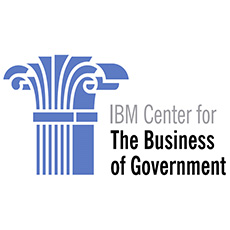
Announcing the Center’s Challenge Grant Competition Recipients
Submitted by rgordon on Thu, 10/15/2020 - 10:25

Thursday, October 15, 2020
Earlier this year, our Center welcomed proposals describing how existing and emerging technologies will transform how government works and delivers services to the public in light of the impact of COVID-19. We received many proposals on the thee topics outlined in the request: 1) changing nature of work, 2) reimagining how government delivers services and products to the public, and 3) managing risk and building resilience. The eight finalists will prepare an essay for a compendium in the coming months. Summaries of each essay follow.
- "The Future of Work in Government: Beyond COVID-19" by Sherri Greenberg, The University of Texas at Austin, LBJ School of Public Affairs. In collaboration with the City of Austin, Texas, this essay will focus on how local government can serve as a model workplace for the future of work. The essay will highlight local government workplace issues including: working remotely, changing jobs, fairly paying employees, implementing technology, training and diversity and equity.
- "Re-thinking the Strategic National Stockpile" by Robert Handfield, NC State University. This essay will offer perspectives on the Strategic National Stockpile and discuss a PPE sourcing strategy. The essay will discuss a flexible, transparent, responsive, globally independent, and equitable supply chain.
- "Trust as Resilience: How New Zealand Cultivated Public Confidence and Squashed COVID-19" by Rodney Scott, University of New South Wales, Australia. This essay will describe how New Zealand, a “team of five million,” complied with more stringent government COVID-19 guidelines than those of similar nations, yet required significantly less enforcement activity.
- "COVID-19 and the Resilience Imperative in Government Contracting" by Zach Huitink, Syracuse University. This essay will discuss how the pandemic should be an occasion to consider how governments can make contracting more resilient going forward. Specifically, governments should further consider how to incorporate hazard mitigation planning and resilience measures across the entire contracting process, so as to enhance continuity and reduce risk from a variety of potential hazards including natural disaster, security incidents, and pandemic disease.
- "Transforming Local Government Service Delivery in the Wake of COVID-19" by Tad McGalliard, International City County Management Association. This essay will use recent data to discuss the ongoing evolution, and future vision of local government management. The essay will focus on staffing and scheduling strategies; virtual public meetings and community engagement approaches; remote permitting, plan review, and other approval procedures; smart city technology advances; social justice and racial equity programming; and the leadership challenges that local government executives are facing during this unprecedented time.
- "Data-Driven Equity and Social Justice Services" by Shannon Smith, King County, WA. This essay will discuss a "Best Run Government," meaning a commitment to unserved and underserved communities by understanding, aligning and connecting through quality services and product delivery. A Best Run Government includes Equity Impact Reviews (EIRs), Equity and Social Justice (ESJ) principles, Lean Six Sigma methodology and the use of Mobile Platform technology.
- "Community Driven Government—Reimagining Systems in a Pandemic" by Maya McKenzie and Gurdeep Gill, King County, WA. This essay will discuss creating structures in community resilience where community members lead and consult in King County, WA. The goal of this work is to create a sustainable model that is robust enough to be replicated throughout the County and other forms of government.



